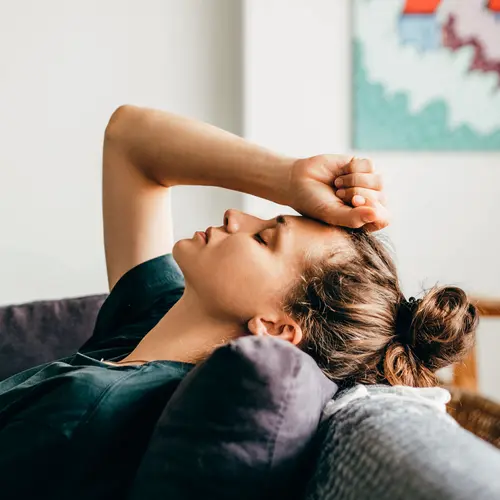Anthropophobia is the fear of people. The National Institute of Mental Health does not use the term. But if you search for the term on the NIMH website, the result "social anxiety disorder" turns up. Some researchers say it is the same as sociophobia, or social phobia, a fear of social gatherings.
Other researchers say the fear goes deeper than that. If you have sociophobia, you might feel comfortable in an anonymous social setting, say, a random crowd of people. With anthropophobia, you will likely feel just as anxious in that crowd as in any other social setting.
You can be a little anthropophobic or extremely so. If you have an extreme case, you may find it hard to deal with even one person at a time, even a loved one. You may prefer to only converse with people electronically.
Anthropophobia can even lead you to quit work or school to avoid social situations. Anthropophobia will not allow you to fulfill your basic human need for connection with other people. It causes conflict in your brain.
Causes of Anthropophobia
All phobias are often linked to trauma in a person’s history. In some cases, just one extremely bad experience is enough to cause anthropophobia. But often it comes about after a series of bad experiences.
Betrayal from close loved ones can trigger this phobia. What begins as one betrayal can bring about a larger trust issue for a person. From there, it can grow into a complete fear of people and all social interactions.
Anthropophobia can also stem from your adrenal glands not working properly. Hormones from your adrenal glands can help or hurt how you deal with stress. Thyroid and heart problems can also be the culprit in anxiety disorders in general.
Sometimes there is a history of anxiety in the person’s family.
Symptoms of Anthropophobia
People sometimes don’t recognize early symptoms of anthropophobia. It can start with a person being unwilling to make eye contact with others, and with worrying about being watched. Along with that, the person is likely anxious about the possibility of being judged.
A clearer symptom is “anticipatory anxiety,” how a person stresses over an upcoming social event. You may end up experiencing stomach problems, sleeping disorders, and headaches as the date draws near.
Panic attacks are also common. They can come about when an anthropophobic person does have to face other people. Symptoms include:
- Sweating and shaking
- Reddening of the skin
- Finding it hard to breathe, speak, or make decisions
- Wanting to run away
- Having the feeling that something bad is about to happen
- Heart beating too fast
Treatments for Anthropophobia
A common fear among mental health specialists is that anthropophobia and other anxiety issues will lead people suffering from them to take comfort in recreational drugs and alcohol. They may even abuse prescription medications such as sedatives.
Unfortunately, drug and alcohol abuse usually just makes things worse if you are anthropophobic and trying to keep a job and deal with people.
If you are anthropophobic, know that there are several available treatment options. Although difficult, early detection is key for stopping the progression of this phobia.
Treatment can be as simple as therapy sessions designed to change negative thoughts to positive thoughts. More extreme cases of anthropophobia will likely take longer to overcome and require more therapy.
A doctor will likely start with a complete physical to look for bodily causes of anxiety. The doctor may also prescribe medications to ease your symptoms and will check for warning signs of dependency. If you don’t want to take meds, you might also ask your doctor about hypnotherapy.
Mind-based therapies, or “talk therapy,” will likely be part of the treatment mix. Pieces of this type of therapy include:
Systematic desensitization. You begin by making a list of your fears and focus on relaxing while concentrating on what you fear. Start with what you fear the least and progress to what you fear the most.
Challenges to old behaviors and teaching new ones — with homework.
Support groups.
Stress management. Some researchers point to meditation and also are looking at the possibility of exercise as ways to ease symptoms.
Anthropophobia can begin with a simple bad experience with someone, grow into social anxiety, and become a crippling fear of all people. If you have this severe condition, early detection and seeking professional help can help ease you out of it. An anxiety hotline might start you off. Since anthropophobia is the fear of people, it can be difficult to seek help from another person, even if they are a professional. However, contacting your doctor is a necessary step to begin recovery.

